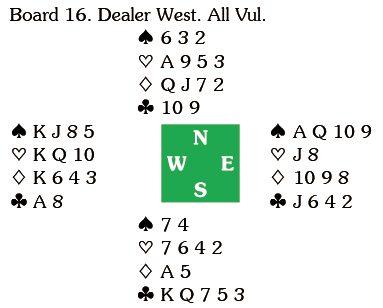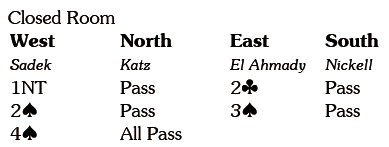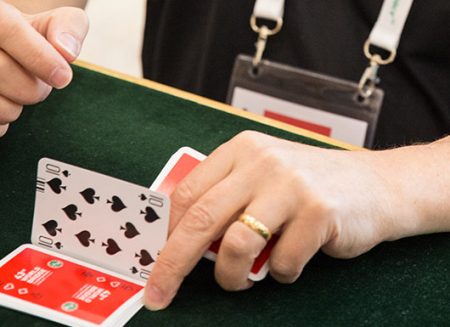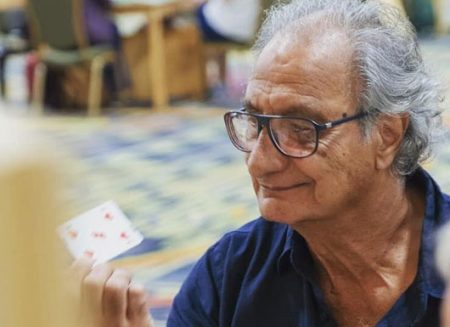This deal from the second session of the Rosenblum round of 16 gave us an opportunity to study the thoughts of the contestants about the choice of opening lead in a very specific situation:


The opponents appear to be limited, so why make an attacking lead?
When North led the [S]3 declarer could win and force out the heart ace, establishing a discard for a diamond. On this layout that was enough for the game to make and it was worth 11 IMPs as in the other room Rodwell’s 1NT had been passed out.
To defeat 4[S] North must lead a diamond.
That’s tough, especially into a strong notrump, and leading from QJ combinations is right up there with leading away from a king. I’ll leave you to think about that, but would mention that if you are going to start with a diamond, a low one is not absurd. You are playing partner for something in the suit, and if dummy and declarer have something along the lines of [D]A103 opposite [D]K84 you will probably get away with it.
Perhaps the biggest argument against leading a trump is that it gives up a tempo (apart from the times it collects partner’s [S]Qx)
A glance at the other matches revealed that Robinson led the [C]10, losing 11 IMPs against the 1NT contract in the other room, as did Hurd. Smith and Sarniak failed to find the diamond lead, so flat in 4[S].
Dennis Bilde gets the accolade – he led the [D]Q to pick up 12 IMPs (the [C]10 was Drijver’s choice – his partner had doubled 2[C] – which also caused Serek to lead a club and lose 11 IMPs).


